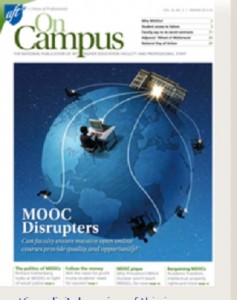Dear Commons Community,
The emergency unemployment federal program that acts as a lifeline for 1.3 million jobless workers will end today, drastically curtailing government support for the long-term unemployed and setting the stage for a major political fight in the new year. This progam, in place since the recession started in 2008, provides up to 47 weeks of supplemental unemployment insurance payments to jobless people looking for work. Its expiration is expected to have far-reaching ramifications for the economy, cutting job growth by about 300,000 positions next year and pushing hundreds of thousands of households below the poverty line. As reported in the New York Times:
“An extension of the unemployment program did not make it into the two-year budget deal that was passed just before Congress left on its winter recess. When the federal program expires, just one in four unemployed Americans will receive jobless benefits — the smallest proportion in half a century…
Democrats on Capitol Hill are pushing for an extension of the program, though the constrained fiscal environment makes its reinstatement somewhat less likely, aides said. Members of the Republican leadership have indicated that they might be willing to extend the benefits, but only if Democrats offset the new spending with other cuts.
On Friday morning, President Obama called Senator Jack Reed, Democrat of Rhode Island, and Senator Dean Heller, Republican of Nevada, to extend his support for their proposal to extend emergency unemployment benefits for three months.
“The president said his administration would, as it has for several weeks now, push Congress to act promptly and in bipartisan fashion to address this urgent economic priority,” said Josh Earnest, a White House spokesman.
As the last payments are distributed, Democrats have initiated a campaign aimed at shaming Republicans — particularly those in leadership and in swing districts — for letting the program expire over the holiday season.
“I don’t know if our colleagues who have opposed passing the unemployment-insurance legislation know or care about the impact on families,” said Nancy Pelosi of California, the House minority leader. “The impact is very, very strong. It hurts the dignity of a family, of a worker.”
Americans United for Change, a liberal group, is running an advertisement on cable television stations. “You know who had a Merry Christmas? The richest 1 percent, that’s who. Republicans in Congress made sure of that, protecting billions in taxpayer giveaways,” it says. “For those facing tough times? Republicans stripped 1.3 million Americans of jobless benefits — folks who want to work, but cannot find a job — kicking them to the curb during Christmas.”
Republican aides said they remained willing to negotiate. “Why didn’t they offer a plan that met the speaker’s requirements — fiscally responsible, with something to create jobs — or any plan, for that matter, before they left for the holidays?” asked Michael Steel, a spokesman for John A. Boehner of Ohio, the speaker of the House.
Some Democrats have suggested that continuing the program for three months, with the estimated $6 billion in spending offsets coming from agricultural subsidies in the farm bill…
“I do support unemployment benefits for the 26 weeks that they’re paid for,” said Senator Rand Paul of Kentucky on Fox News. “If you extend it beyond that, you do a disservice to these workers. When you allow people to be on unemployment insurance for 99 weeks, you’re causing them to become part of this perpetual unemployed group in our economy.”
The loss of benefits is expected to drain billions in consumer spending from the economy next year. People losing their federal benefits — often benefits they expected to continue to receive for weeks or months into 2014 — described cutting back on Christmas, driving less, turning off the heat, draining retirement accounts, applying for food stamps, readying to move in with relatives and missing mortgage payments.”
We hope for a compromise soon after the New Year when Congress reconvenes!
Tony





